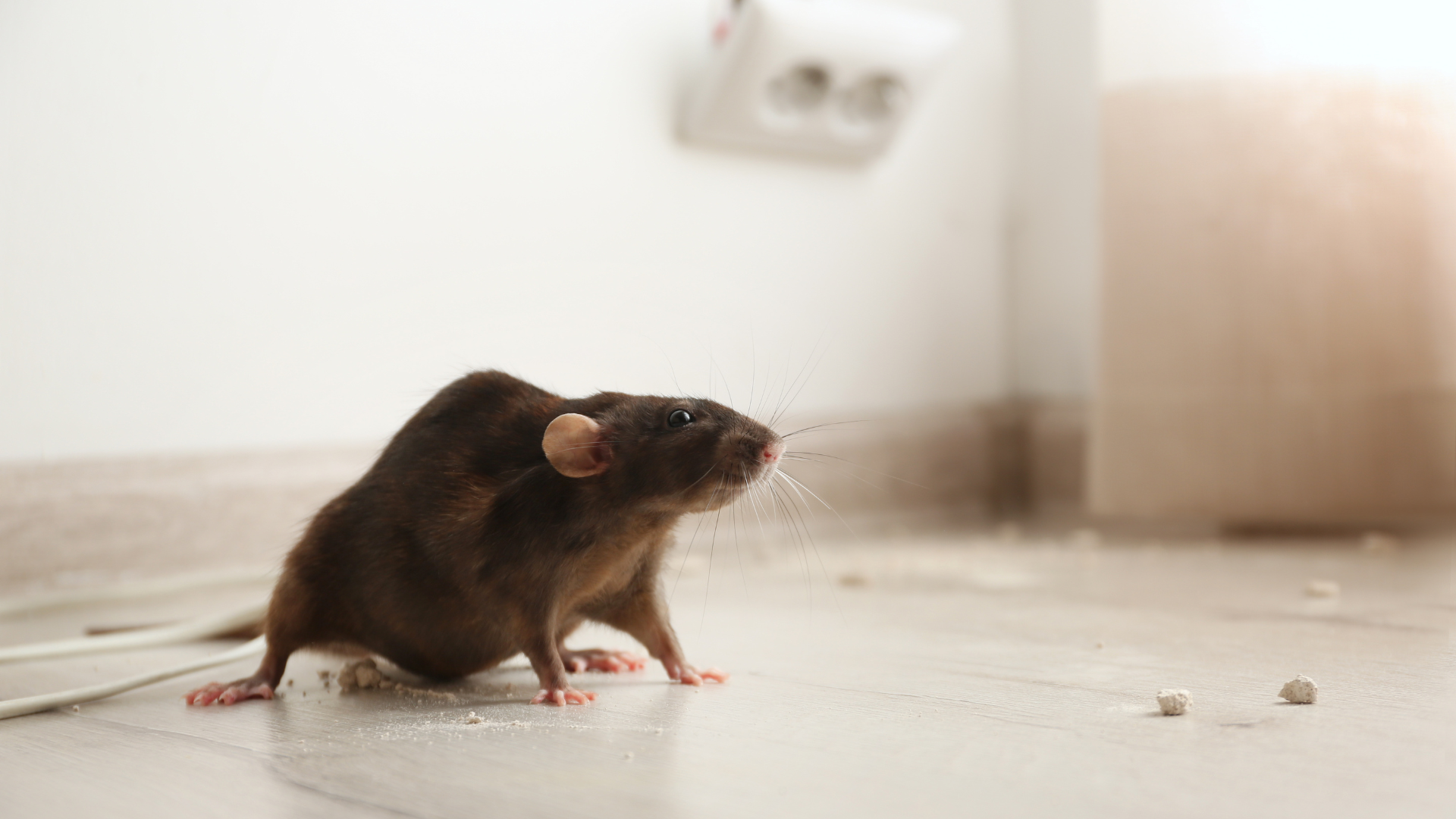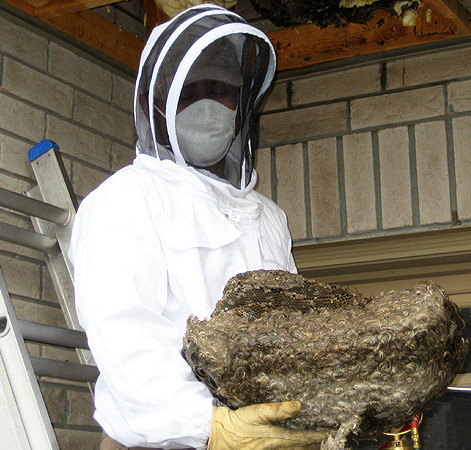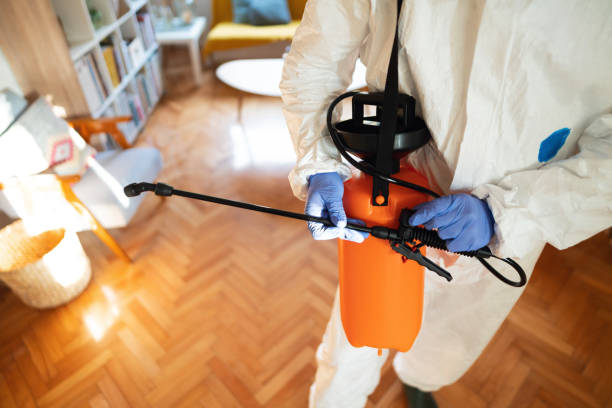9 Common Mouse Control Mistakes, and How to Avoid Them

Mice infestations are a common household nuisance, and addressing them promptly is essential for maintaining a healthy home environment. However, many homeowners need to be more careful with their attempts to eliminate mice.
In this article, we’ll explore nine common mistakes to avoid when getting rid of mice, providing valuable insights for effective pest control.
1. Neglecting Proper Sanitation Practices
Mice are opportunistic feeders whose keen sense of smell guides them to potential food sources. Mice have about 1200 kinds of odor receptors. In comparison, humans —who rely more on vision than smell— have about 350 odor receptors. Neglecting proper sanitation inadvertently gives mice the ideal conditions for thriving and reproducing within your home.
Adopt a habit of promptly wiping down surfaces after meals, regularly vacuuming, and ensuring food is stored in airtight containers. Regularly declutter storage spaces, seal off potential entry points, and keep these areas well-lit and well-ventilated to discourage mice from nesting. By sanitizing the home, homeowners create an environment that is less hospitable to mice.
2. Ignoring Early Signs of Infestation
Early detection is key when dealing with mice infestations. Ignoring signals can lead to rapid population growth and increased property damage, making it harder to eliminate mice. Here’s a list of some early signs of a mouse infestation:
-
- Scratching Noises- hearing audible sounds of scratching or scurrying, especially during quiet periods such as the night
-
- Droppings- seeing small, dark droppings resembling grains of rice found in hidden corners, along baseboards, or near potential nesting sites
-
- Chewed Wires or Cardboard- seeing visible damage to electrical wires, cardboard, or other materials, indicating gnawing behavior characteristic of mice
-
- Nesting Materials- seeing small shreds of paper, fabric, or other soft materials that mice use for building nests
-
- Gnaw Marks- seeing small, distinct gnaw marks on furniture, food packaging, or structural components
-
- Unexplained Pet Behavior- seeing pets displaying sudden interest in certain areas, or corners, or exhibiting heightened alertness, potentially sensing the presence of mice.
-
- Musky Odor- detecting a distinctive, musky smell in enclosed spaces, particularly where mice may nest.
-
- Visible Entry Points- seeing openings or gaps in walls, doors, windows, or other structural elements that could serve as entry points for mice.
These signs collectively indicate the presence of mice and should prompt homeowners to take proactive measures to address the infestation promptly. Consider implementing DIY solutions ASAP, such as sealing entry points and placing traps.
3. Using Ineffective Baits and Traps

The right selection of bait and traps is essential for getting rid of mice. Understand the types of traps available, including snap traps, glue traps, and bait stations. Also, use fresh and enticing bait, place traps strategically, and regularly check and reset them for optimal effectiveness..
Exclusion measures involve sealing potential entry points and blocking access to food sources. This creates an inhospitable environment for mice, minimizing opportunities for shelter and nesting. Regularly inspect and maintain exclusion measures to reinforce your home’s defense against infestations.
4. Inadequate Sealing of Entry Points
Ensuring your home is a fortress against mouse invasions starts with adequately sealing entry points. These entry points are like secret doors that mice use to sneak into your house. Standard openings include gaps around doors and windows, vents, and openings in the foundation. It’s like closing all the doors and windows before you sleep – it keeps the mice out.
Proper sealing is like putting locks on these secret doors. It’s a way to ensure mice can’t just stroll into your home whenever they please. To stay one step ahead, make it a habit to inspect your house regularly. Check for any new gaps or weak spots, especially after extreme weather changes.
Related Article: The Ultimate Guide To Get Rid Of Mice
5. Using Excessive Chemicals
Using too many pesticides can be harmful not just to the environment but also to your pets and family members. In getting rid of mice, using too many chemicals is similar to relying on excessive medicine – while it might address the issue at hand, it can create new problems.
Maintaining a balance between effective mouse control and environmental responsibility is crucial. It’s about finding the right mix of strength and gentleness to address the mouse issue without causing additional problems. Choosing targeted products with lower toxicity allows us to get rid of mice in our homes without compromising the well-being of our shared environment. It’s a thoughtful approach to mouse control that keeps our living spaces safe and mouse-free.
6. Disregarding the Impact of Environmental Factors
Neglecting the influence of environmental factors when getting rid of mice is a common oversight of ineffective pest control. Weather and climate play a substantial role in determining mice’s behavior and movement patterns. Understanding these environmental cues is crucial for developing a comprehensive strategy to keep mice at bay.
Mouse activity tends to vary with seasons. During colder months, mice often seek shelter indoors, making winter a peak season for potential infestations. As the weather warms up, mice may become more active outdoors but could still venture inside searching for food and shelter. Seasonal considerations should guide adjustments in your pest control approach, adapting strategies to align with the specific challenges of different times of the year.
While DIY efforts are valuable, professional assistance becomes particularly beneficial during peak seasons of heightened mouse activity. Pest control experts can conduct thorough assessments, identify vulnerable points in your home, and implement targeted strategies to address seasonal challenges effectively.
7. Failing to Consider The Health Risks
According to the CDC, some mice and rats can carry harmful diseases, such as but not limited to the following:
-
- Hantavirus, including Hantavirus Pulmonary Syndrome and Hemorrhagic Fever with Renal Syndrome
-
- Lassa Fever
-
- Leptospirosis
-
- Lujo Hemorrhagic Fever
-
- Lymphocytic Choriomeningitis (LCM)
-
- Monkeypox
-
- Omsk Hemorrhagic Fever
-
- Rat-Bite Fever
-
- Salmonellosis
-
- South American Arenaviruses, including Argentine hemorrhagic fever, Bolivian hemorrhagic fever, Chapare Hemorrhagic Fever, Sabiá-associated hemorrhagic fever, and Venezuelan hemorrhagic fever
-
- Sylvatic Typhus
-
- Mice can also expose you to tick, flea, and mite-borne diseases such as babesiosis, borreliosis, Colorado tick fever, plague, scrub typhus, and tularemia.
Ineffective pest control can exacerbate allergies and expose occupants to these diseases. Prioritize your health by using protective gear during cleanup, seeking medical attention if exposed, and following recommended safety guidelines.
8. Not Seeking Professional Assistance When Needed
While DIY methods can be cost-effective, a mice infestation may need the help of professional exterminators and pest control services. Homeowners should understand the limitations of homemade remedies and recognize when professional help is necessary. DIY efforts are suitable for prevention, but for established infestations, seek the assistance of pest control experts.
Persistent infestations, unsuccessful DIY attempts, and health concerns are indicators that professional extermination may be necessary. Pest control experts like Diagno Pest provide tailored solutions, comprehensive inspections, and long-term prevention strategies. When seeking professional assistance, research local pest control companies, read up on reviews, and inquire about service guarantees.
9. Lack of Follow-Up and Preventive Measures
Maintaining effective mouse control extends beyond initial extermination efforts. After extermination, follow-up is essential to confirm complete eradication and address any lingering issues. This step ensures that your home remains mouse-free. Regular inspections are vital in identifying new activity or vulnerabilities, allowing for early intervention before problems escalate.
Preventive measures are essential to long-term success in mouse control. Keeping your home clean and organized is crucial, as mice are attracted to clutter and accessible food sources. Consistently sealing entry points is an ongoing task that is critical to preventive measures. Regular inspections and proactive sealing efforts collectively create a robust defense against potential mouse incursions.
A holistic approach when getting rid of mice involves post-extermination follow-up and ongoing preventive measures. These actions, including regular inspections, cleanliness, and sealing efforts, contribute to a mouse-free and healthy living environment. By staying proactive, homeowners can enjoy long-term success in keeping their homes pest-free.
FAQs
Why Do I Get Mice?
Mice like to stay inside when it’s cold outside because it’s safer and warmer. They also look for food and water, not just warmth. Additionally, they are more likely to infiltrate your home when there are holes around pipes and wires and under doors, trash and food in your yard, and mice next door.
Why Do Mice Eat Everything?
Mice have a versatile diet, and their inclination to eat a variety of items stems from their opportunistic nature. As scavengers, mice are adapted to eat a wide range of foods to meet their nutritional needs. Additionally, mice may seem to eat a lot because they have to gnaw all the time to keep their teeth the same length. A lot of damage is done to property by this habit. A lot of the time, they damage wood, gas lines, electrical wires, and packaging.
What Food Do Mice Like to Eat?
Mice need about 3 grams of food every day. They like to eat cereal, veggies, seeds, and grains. They also eat nuts, mushrooms, and snails when they are outside. To deter mice, store food in airtight containers, keep countertops clean, and promptly clean up crumbs. Additionally, consider using mouse-friendly bait in traps, such as peanut butter or chocolate, to enhance trap effectiveness. Combining proper food storage practices with preventive measures ensures a less hospitable environment for mice and contributes to successful pest management.
How Do I Get Rid of Mice?
To effectively get rid of mice, you need to adopt a comprehensive approach. Begin by identifying and sealing potential entry points, such as gaps around doors and windows. Utilize materials like weather stripping and steel wool to reinforce these barriers. Proper sanitation practices, including regular cleaning, food storage, and waste disposal, help eliminate attractant. Regular inspections and follow-up measures post-extermination contribute to long-term success. Professional assistance can be invaluable, especially during peak seasons of mouse activity. By combining these strategies, you create a more resilient defense against mice, ensuring a mouse-free and healthy living environment.
HAVE A MOUSE-FREE HOME WITH DIAGNO PEST
Avoiding common mistakes is crucial for effective mouse control. Homeowners can ensure a mouse-free and healthy living environment by combining proactive prevention, strategic intervention, and professional assistance when needed.
Diagno Pest Control is a locally owned business in Philadelphia. Our team of professionals has years of experience in pest control, so we know how to solve all your pest problems quickly and affordably. We’re proud of the quick and friendly service we provide, and we want you to be happy with our work. Contact us today for a personalized and comprehensive pest control service package, and have a mouse-free home for you and your family!






